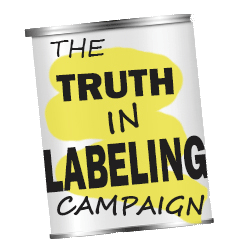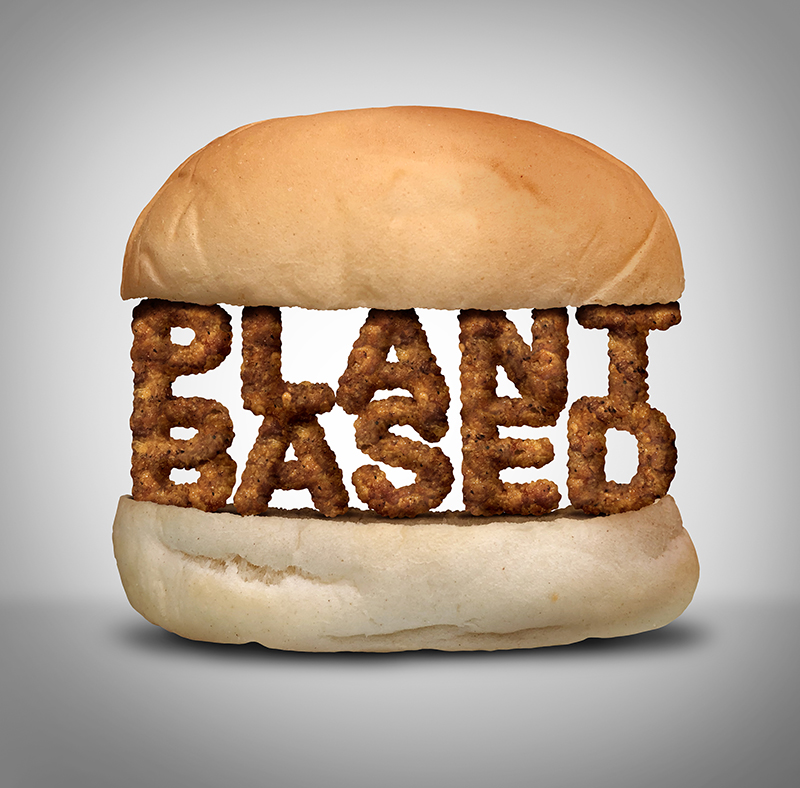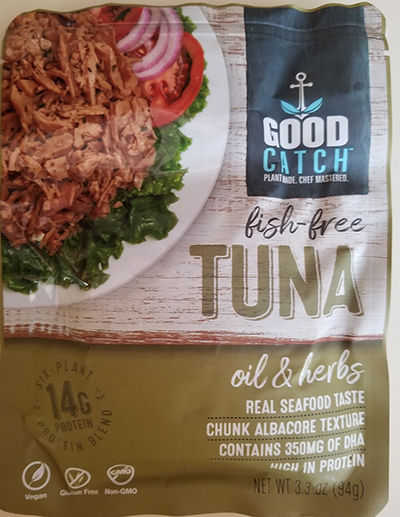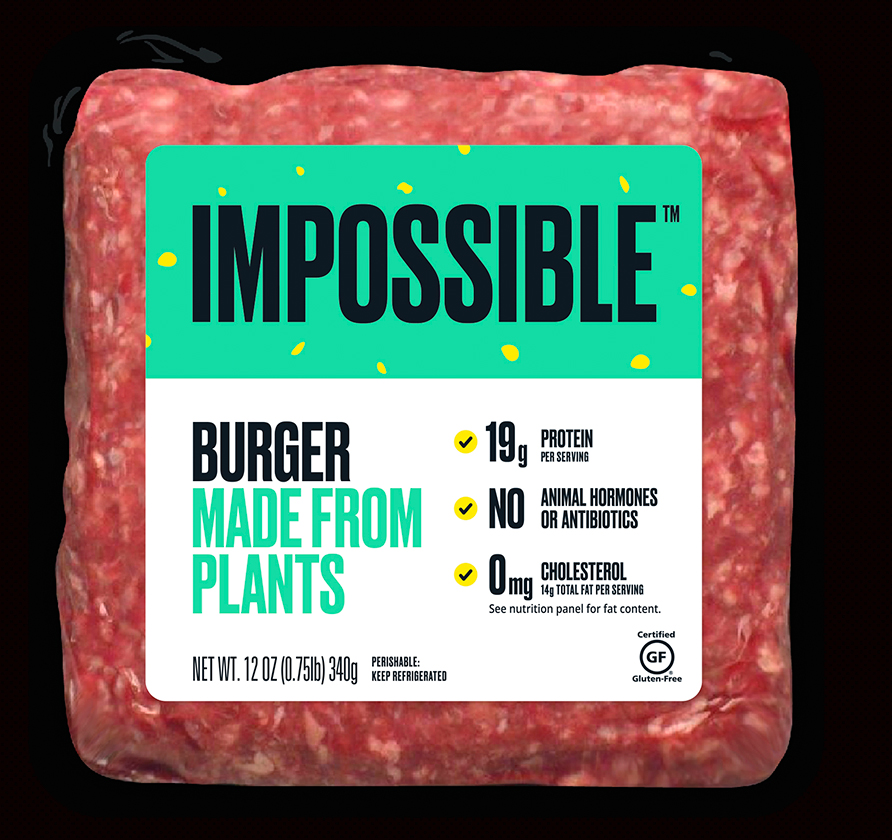The Covid-19 pandemic has presented untold challenges for people everywhere. For certain segments of the U.S. food industry, however, it was likely a dream come true.
Sales of what the FDA calls “substitute” foods are off the charts, and new products are being introduced at a record pace. According to industry experts, last year saw an almost 30 percent increase in these “foods,” with sales hitting the $7 billion mark (that’s right, B as in billion), far exceeding the growth of the “total U.S. retail food market.” As a result, experts now consider 2020 to have been “a breakout year for plant-based foods across the store.”
But what do those billions of dollars in sales represent? Not a healthy new way to eat while saving the planet, that’s for sure. In truth, these products, which are advertised as being wholesome alternatives to real meat, fish and eggs, are chemically laden promotors of obesity, infertility and migraines, filled with brain-damaging manufactured free glutamic acid (MfG) — the same toxic ingredient found in monosodium glutamate.
So, what are these toxic products made from and how do manufacturers get away with using the names of real food on their packaging?
Ersatz eggs
Let’s start with plant-based “eggs,” an unknown commodity just a short time ago that is now out-selling the real deal at ten times the rate.
The leader in the artificial egg game is JUST, Inc., makers of JUST Egg, which contains nothing that any reasonable person would consider having come from a bird of any kind. JUST, however, has no shame about splashing the word EGG all over its product and website. The company (known as Hampton Creek when it introduced its first fake product, mock mayo) is apparently taking advantage of an odd FDA loophole in the “standard of identity” (SOI) for what can be called an egg. While the FDA requires that there be a legally binding SOI for hundreds of items from peanut butter to pasta (consisting of a detailed description of that food), you won’t find eggs among them. And, to make things even crazier, the FDA is prohibited from creating an SOI for eggs.
So, a product concocted of mung bean protein isolate (containing MSG’s toxic component MfG), canola oil, tetrasodium pyrophosphate (a thickening agent or coagulant) and transglutaminase (a.k.a. “meat glue”), among other highly processed ingredients, came to be called “egg,” outselling highly nutritional real eggs.
Fake fish
The ever-expanding market for imitation food has reeled in a host of phony fish dishes, the latest coming from “Good Catch,” with its “fish-free TUNA.”
This product contains more brain damaging MfG ingredients than any other product we’ve previously looked at, including pea protein isolate, soy protein concentrate, faba protein, lentil protein, soy protein isolate, citric acid and yeast extract.
Why the company has not been challenged by the FDA for false and misleading labeling isn’t clear, since the FDA has a long list of what can legally be called tuna, which is limited to actual varieties of real fish. Nestle, which also makes a faux fish product at least calls it “Vuna,” a product that “tastes like tuna.”
That little detail hasn’t stopped “Good Catch” from netting millions of dollars in investment capital, including close to $30 million in its latest round of funding.
The big kahuna of mock meat
While meatless burgers and nuggets have been around for some time, it wasn’t until Impossible Foods came along with the additive-filled concoction it calls a “burger” that the market for consuming bogus beef took off.
While Impossible claims it’s busy saving the Earth from devastation, it doesn’t have much to say on its main component, soy-protein concentrate, an MfG filled excitotoxic ingredient. And that’s not the only one. You’ll also find natural flavors, potato protein, yeast extract and soy-protein isolate in their “burgers.”
Aside from the known brain-damaging nature of these ingredients, there’s also a GMO ingredient called soy leghemoglobin, or heme, added as a color additive to make the burger appear to “bleed” like real meat. That’s now the subject of a lawsuit filed by The Center for Food Safety (CFS) challenging the FDA’s approval of the ingredient.
This genetically modified soy (a newcomer to the human diet), was OK’d by the FDA without “extensive safety testing before approving its use,” CFS states.
The heme is produced by a chemically complex process in which the DNA from genetically modified soy is extracted, inserted into genetically engineered yeast and fermented to produce genetically engineered heme.
The FDA has no comment as to the regulatory compliance of these fake foods other than saying (in a 2018 press release) that it’s on a “fast track” in reviewing “substitute” food products. The last we were told by the FDA is that staffers there are busy reading over 13,000 comments on this issue and that they take “labeling concerns seriously.” But apparently not all that seriously, as more and more foods that aren’t really foods are being manufactured and misleadingly labeled all the time.
How one health crisis is helping to fuel another
It seems that it took a world-wide health crisis to give these “substitute” products the push needed to rake in those billions in sales. Along with meat shortages last year and the all-around difficulty in buying actual food items, somehow these products became labeled by some as “healthier” eating, with numerous articles attributing the plant-based “revolution” to Covid-19.
But despite all the extravagant claims made by manufacturers, if you read the ingredient labels on these products you’ll find that they are not eggs, meat or fish, and not the kinds of “plants” grown by farmers either. As we’ve said before, a better name might be chemical-based junk foods.
Finally…
Watch out for products that make protein claims on the packaging. Most are made from combinations of manufactured free amino acids such as those found in MSG and in aspartame. This includes snack bars, cookies, smoothie mixes, protein powders and protein drinks in addition to fake eggs, fish, and meat.
All, “substitute” protein products will contain MSG or its toxic MfG.
Remember also that soy, pea and bean protein do not taste remotely like meat, fish or eggs, so MfG-containing flavor enhancers like MSG are added to trick your tongue into making that taste association.
Check out our list of ingredient names that contain MfG as well as our brochure to take shopping with you. Better yet, if you want to do all you can to have a healthy diet, ditch the processed foods and ultra-processed fake foods, altogether.
If you have questions or comments, we’d love to hear from you. If you have hints for others on how to avoid exposure to MfG, send them along, too, and we’ll put them up on Facebook. Or you can reach us at questionsaboutmsg@gmail.com and follow us on Twitter @truthlabeling.











